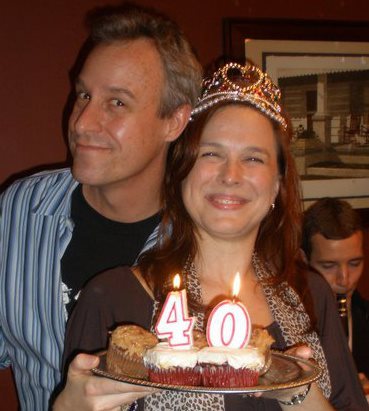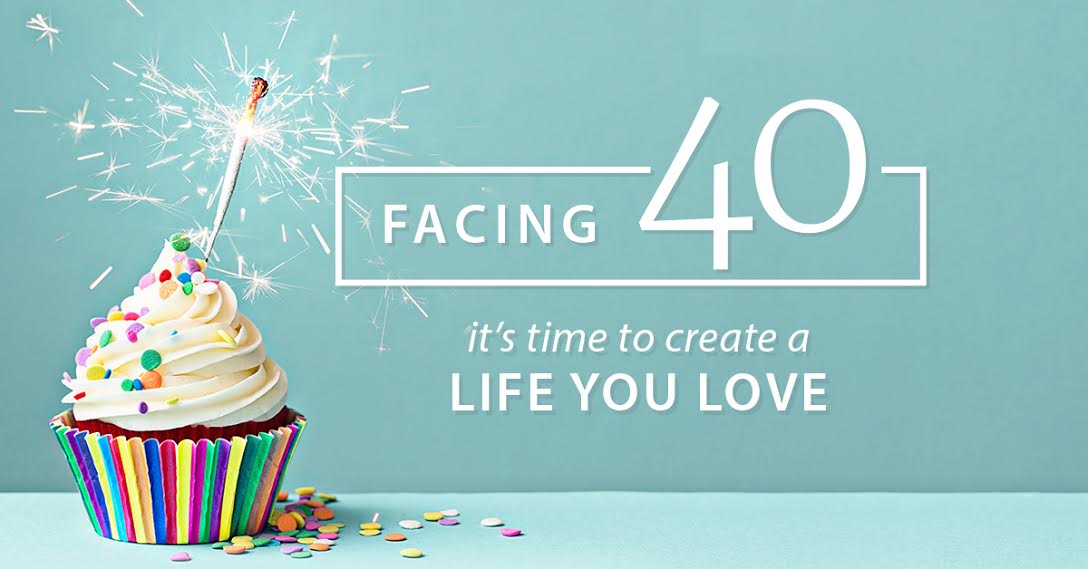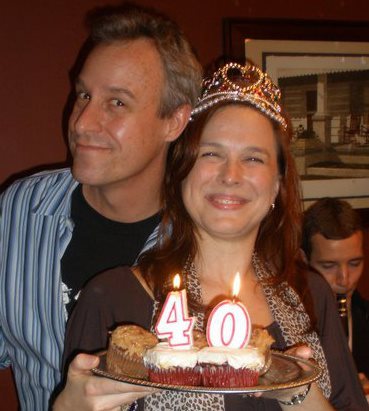The cliche of the middle-aged guy buying a sports car and ditching his wife for a girl half his age always struck me as a desperate move to avoid aging — when the pressures of parenting and career collide with the increasing aches and pains and wrinkles of a body in decline, hook up with someone who knows nothing of those woes.
Then I went through it myself, sans sports car and underage fling.

When people ask what motivated me to start this blog, my shorthand is often, “In something of a midlife crisis approaching 40, I started to think more about what makes life have meaning.” I felt lost as I realized I wasn’t interested in continuing to climb the career ladder I was on, and wondered if I’d feel more reason to get up in the morning if we’d had children. This blog gave me a reason to think about and write about what I should be when I grow up.
I wish I’d heard about the U-curve back then. I might have realized it’s not just me.
Jonathan Rauch wrote a thoughtful article for the The Atlantic headlined, “The Real Roots of Midlife Crisis.” If you’re in the midst of a crisis — or perhaps even better, not yet there — let Rauch show you the body of research that points to our happiness tanking in our 40s and 50s, even adjusted for life conditions including income, marital status and employment.
A few key points:
- Research across countries and even across species show this tendency for a U-curve in happiness.
(Andrew) Oswald, Terence Cheng, and Nattavudh Powdthavee have found the U-curve in four longitudinal data sets from three countries: an important kind of evidence, because it traces the lived experiences of individuals over time, rather than comparing people of various ages in a statistical snapshot. Likewise, Blanchflower and Oswald, looking at samples from 27 European countries, have found a “strong hill-shaped pattern” in the use of antidepressants, peaking in people’s late 40s. Being middle-aged “nearly doubles” a person’s likelihood of using antidepressants. The same pattern appears, they’ve found, in the two U.S. states that collect the relevant data (New Hampshire and New Mexico).
And a lot of eyebrows went up when Oswald and four other scholars, including two primatologists, found a U-shaped curve in chimpanzees’ and orangutans’ state of mind over time. Zookeepers, researchers, and other animal caretakers filled out a questionnaire rating the well-being of their primate charges (more than 500 captive chimps and orangutans in Australia, Canada, Japan, Singapore, and the United States). The apes’ well-being bottomed out at ages comparable, in people, to between 45 and 50. “Our results,” the authors concluded in a 2012 paper, “imply that human wellbeing’s curved shape is not uniquely human and that, although it may be partly explained by aspects of human life and society, its origins may lie partly in the biology we share with closely related great apes.”
2. Maybe we start to climb out of the happiness crater when we begin to shift what makes us happy — instead of striving for the outward trappings of success, which don’t bring us the satisfaction we hoped, we care more about family and friends.
(Laura) Carstensen and her colleagues (wrote) in their 2011 paper: “As people age and time horizons grow shorter,” they write, “people invest in what is most important, typically meaningful relationships, and derive increasingly greater satisfaction from these investments.” Midlife is, for many people, a time of recalibration, when they begin to evaluate their lives less in terms of social competition and more in terms of social connectedness. In my 40s, I found I was obsessively comparing my life with other people’s: scoring and judging myself, and counting up the ways in which I had fallen behind in a race. Where was my best seller? My literary masterpiece? Barack Obama was younger than I, and look where he was! In my 50s, like my friend K., I find myself more inclined to prize and enjoy people and relationships, which mercifully seem to be pushing the unwinnable status competition into the background. Also, Carstensen told me, “when the future becomes less distant, more constrained, people focus on the present, and we think that’s better for emotional experience. The goals that are chronically activated in old age are ones about meaning and savoring and living for the moment.”
3. As we gain more perspective, we might cope with life better. I definitely feel I’ve mellowed since my 20s, and can only imagine the coming decades will bring more of the same.
In recent years, Western psychiatry has generated a very small but scientifically legitimate body of research literature on wisdom. Surveying both modern research and ancient texts, (Dilip V.) Jeste found that the concept of wisdom has stayed “surprisingly similar” across centuries and across geographic regions: “All across the world, we have an implicit notion of what a wise person is.” The traits of the wise tend to include compassion and empathy, good social reasoning and decision making, equanimity, tolerance of divergent values, comfort with uncertainty and ambiguity. And the whole package is more than the sum of the parts, because these traits work together to improve life not only for the wise but also for their communities. Wisdom is pro-social. (Has any society ever wanted less of it?) Humans, Jeste says, live for an unusually long time after their fertile years; perhaps wisdom provides benefits to our children or our social groups that make older people worth keeping around, from an evolutionary perspective.
“Wisdom is useful at any age,” he says. “But from an evolutionary point of view, younger people are fertile, so even if they’re not wise, they’re okay. But older people need to find some other way that they can contribute to the survival of the species.” It’s also possible, he says, that “competitiveness may be more favored in the young, and more emotional regulation, more tolerance of diversity, more insight, in older people.”
 My friend Lauree Ostrofsky recently launched a life coaching program she calls Facing 40. She writes:
My friend Lauree Ostrofsky recently launched a life coaching program she calls Facing 40. She writes:
It’s time to get past the anxious shoulds rolling around in your head — the need to ask a third friend what she thinks you should do — and to hear the voice inside that knows the answer already.
It’s time to have the courage to go after your dreams.
It’s time to Be The Woman You Admire, not just read her books, attend her retreats, and tell all of your friends about her. Be Her.
Realizing your time on Earth is short can be a powerful motivator to do the things you’ve always wanted.
I think the U-curve research also suggests it’s OK if you’ve been chasing your dreams full throttle and you’re no happier. Maybe you need to give yourself a little permission to feel that dark time and to switch up what you think you’re chasing.
I look forward to spending time with other women using a milestone birthday to recalibrate and re-evaluate, because now that 40 is safely in my rear view mirror, I’m eager to start climbing up the other side of the U.
Related blog posts:
- Guest post from Zen Habits: The Unpredictable Freedom and Sweetness of Chaos
- Following your bliss, taking a hero’s journey — inspired by Finding Joe
- Steve Jobs reflects on the meaning of death
- Measure your success by more than your title and pay
- Why Your Life Purpose Hurts Sometimes — a guest post from Christine Kane
- Feel the fear and do it anyway
- What doesn’t kill you makes you stronger


4 Comments
cicorm
Interesting write, Colleen! I suppose we can only hope (try to work such) that wisdom rises faster than age then, for a better shaped curve! 🙂
Leave a reply